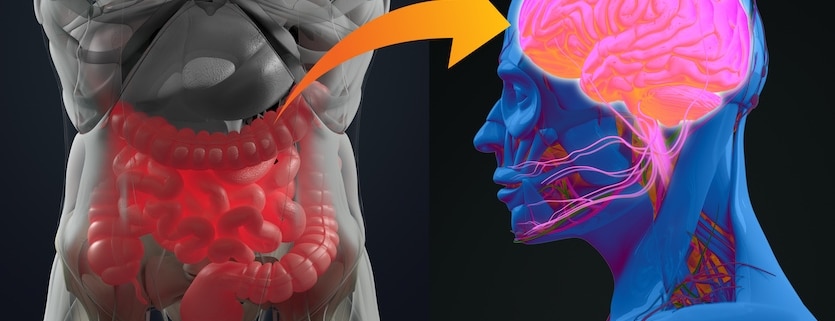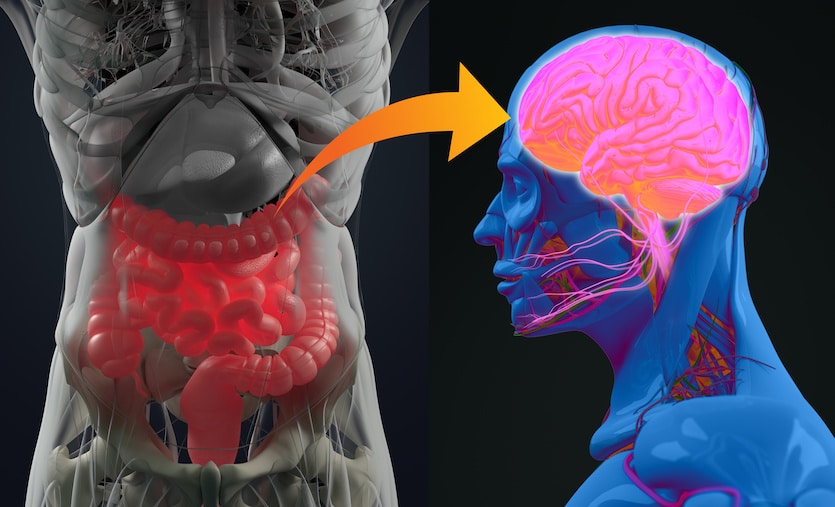Short-Chain Fatty Acids—and Where to Find Them
Fat gets a bad rap in the world of nutrition. Somewhere along the line society decided fat is bad—and by extension, that fatty foods are bad. For instance, when you read the term “short-chain fatty acids,” your knee-jerk reaction is probably something negative. But as any nutritionist worth their salt can tell you, this isn’t the case.
So set your preconceived notions aside and read on to learn what short-chain fatty acids are and why they’re crucial to your gut health.
What are Short-Chain Fatty Acids (SCFAs)?
A lot of misconceptions about fat are out there. So before getting into anything else, let’s clear a few of those up. The first thing to remember is that fats aren’t inherently bad. In fact, fats play a crucial role in your body’s nutrition. Dietary fats—or fats you get from food—give your body energy, store and absorb nutrients, and help your cells function properly.
When you ingest dietary fats, your body breaks them down into fatty acids. Think of these as the base building blocks of fats. Fatty acids are molecules with a chain of carbon atoms bonded with hydrogen atoms.
The term “short-chain” refers to the string of carbon atoms. Short-chain fatty acids (SCFAs) are simply fatty acids that have a small carbon backbone. (Fatty acids with more than six carbon atoms are categorized as medium-chain, long-chain, or very long-chain.)
Unlike most fatty acids, the majority of SCFAs are not actually found in foods. Instead, they’re a byproduct created in your colon as your body digests fiber. So the more fiber you have in your diet, the more short-chain fatty acids your body will produce.
If this doesn’t seem like a big deal, don’t worry—the next section explains why.
Short-chain Fatty Acids and Health
Short-chain fatty acids are produced from fiber digested primarily in the large intestine—specifically the colon. To see the role SCFAs play in your body, you don’t have to look far.
As the good bacteria in your intestines—aka your microbiome—break down fiber to create SCFAs, these fatty acids go on to provide energy to the cells and support healthy inflammation in your colon. Basically, SCFAs help keep your large intestine running smoothly—and that’s never a bad thing.
If weight management is one of your health goals, short-chain fatty acids will play a part in your success. Acetate, one of the three most common SCFAs in the body, has been tied to increased metabolism (your body’s ability to digest food) as well as decreased appetite. Together, these two factors can help you maintain a healthy weight.
The Gut-Brain Axis: Short-Chain Fatty Acids and the Central Nervous System
Whether you’re aware of it or not, your gut is home to trillions of bacteria, fungi, viruses, and other microorganisms. This lively community, known as your gut biome, is responsible for several vital bodily functions (like producing SCFAs from fiber).
For your microbiome to do its job effectively, it has to communicate with your body—more specifically, with your brain. Here’s the problem: these microorganisms are residents of your body, not a part of it. So how can you communicate with them?
The answer is simple: trust your gut. Studies have pinpointed the intestines as the main line of communication between your central nervous system (the brain) and your resident microbiome. This connection, known as the gut-brain axis, is crucial for maintaining balance in your gut and your body as a whole.
So where do short-chain fatty acids come in?
SCFAs help promote colon and intestinal health, which indirectly helps keep communication flowing along the gut-brain axis. Your gut is the mediator between your microbiome and your brain after all, so a healthy gut is perhaps the most important part of the axis.
As it turns out, the effects of short-chain fatty acids on the gut-brain axis might not end there. Recent studies have shown that SCFAs can cross the blood-brain barrier (BBB). This means SCFAs are able to move from the colon where they’re produced to the brain. The exact impact of this movement has yet to be fully explored, but it’s speculated SCFAs actually help maintain the health of the BBB, which in turn helps promote balance in the central nervous system.
Although there’s a lot of information out there about the microbiome, researchers have only scratched the surface of the gut-brain axis. The more we learn about the communication between our body’s microorganisms and our brain, the more we will learn about our health.
Short-Chain Fatty Acids and Your Diet
As mentioned above, you don’t get many short-chain fatty acids from food—at least not directly. If you want to increase the level of SCFAs in your body, look to increase your fiber intake.
Fiber-rich foods linked to the production of SCFAs include fruits, vegetables, and legumes. These are some pretty broad categories, so you’ve got lots of options. Whether you’re eating artichokes, apples, or just about anything in between, you’re giving your body a fiber boost. When it comes to SCFAs, an apple a day keeps the colon happy.
References
https://www.frontiersin.org/articles/10.3389/fendo.2020.00025/full
https://www.healthline.com/nutrition/short-chain-fatty-acids-101
https://www.webmd.com/digestive-disorders/what-to-know-short-chain-fatty-acids
https://www.verywellhealth.com/short-chain-fatty-acids-5219806
https://nutritionfacts.org/topics/short-chain-fatty-acids/






